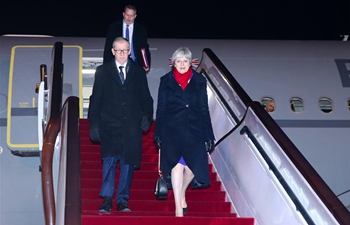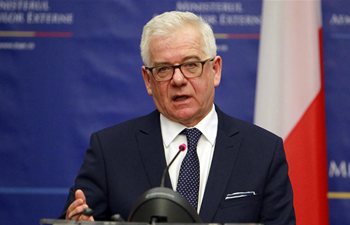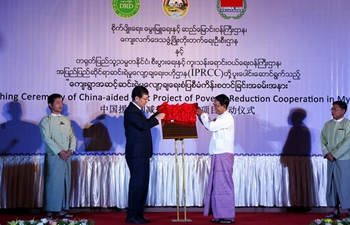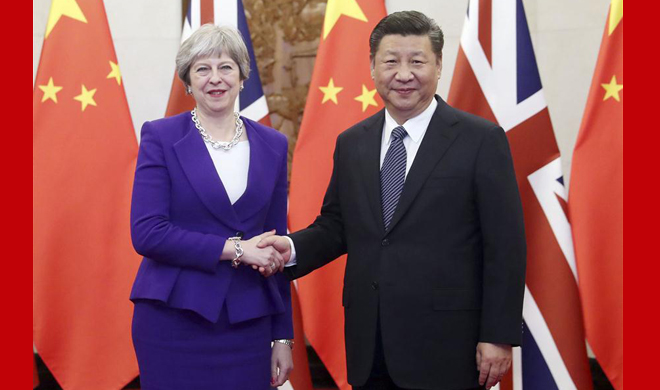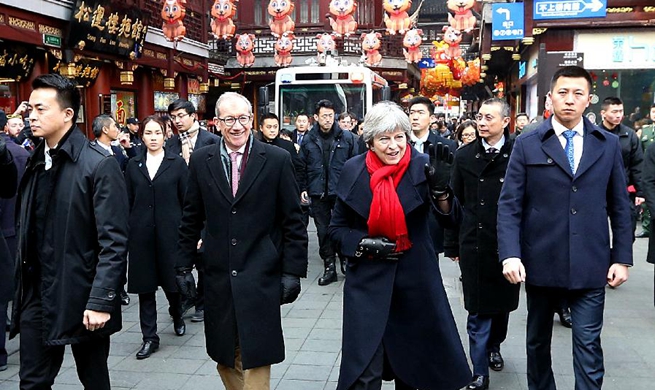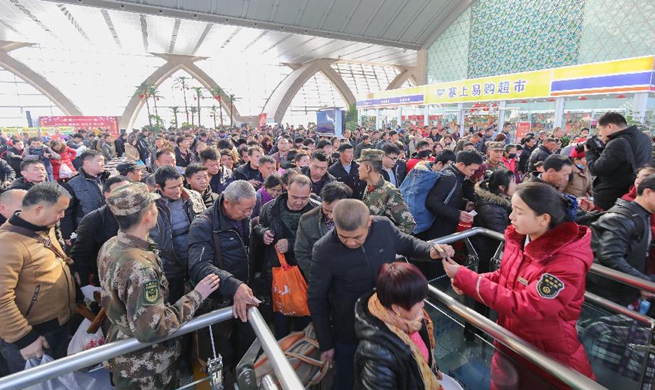by Xinhua writer Wang Bowen
JERUSALEM, Feb. 2 (Xinhua) -- "Among the 650 million U.S. dollars we raised in 2017, half came from Asia," said Roland Wee, managing director of Asia operations at OurCrowd, the largest equity crowdfunding platform in the Middle East.
He made the remarks Thursday on the sidelines of the company's annual investor summit held in Jerusalem Convention Center, which attracted about 10,000 registered attendees in person and online from over 90 countries, including 1,000 startups, 500 multinational firms, and 500 venture capitalists.
EYES ON ASIA
In a local market of only 8.6 million population, the usual practice for most Israeli companies since inception is to bring their products to the U.S. market, using it as a springboard to reach global customers.
Once the products succeed, the companies could spread their business to different corners of the world through U.S. offices.
"That trend is changing," said Wee. "Israeli companies are starting to think whether they need the United States in between."
According to a Brookings report in 2017, the middle-class expansion is expected to be broadly based and heavily concentrated in Asia, notably China and India. The vast majority, 88 percent of the next billion middle-class people will be Asian.
In China and India, Asia's two biggest countries, Israel's image has been positive, which bodes well for Israeli companies to enter.
Moreover, with Israeli Prime Minister Benjamin Netanyahu's state visits to China last year and India this year, relations between Israel and these two ancient civilizations in the east registered a significant elevation.
At the breakout session on Asia, Janet Young, head of Group Channels and Digitalization at United Overseas Bank Limited (UOB), said her message to the Israeli startup ecosystem was "the 21st century is an Asia-pacific century, not only for demographic reasons, but also the economic vitality and social stability."
"Instead of just being U.S.-oriented, they need to balance the pivot," said Young.
OurCrowd has put in place three offices, namely Hong Kong, Taipei, and Singapore, intending to radiate investors across the whole eastern hemisphere.
"While witnessing a surging demand in Asia to invest in Israel's startups, we are also seeing a growing number of Israeli investment in Asian small and medium enterprises (SMEs)," said Young.
Entrepreneurs, startups and SMEs worldwide face a common problem of sourcing funds, where venture capital has a role to play. "It is always a two-way thing," said Young.
She also warned of challenges ahead for Israeli companies to operate in Asia. "They need to know about the diverse cultures in Asia and our way of doing things."
"Our partnership with OurCrowd is a natural extension of our interest in nurturing the growth of small businesses," Young said.
TURN TO CHINESE MARKET
"We've been closely watching the Chinese market," Wee said, although among the 25,000 registered investors from 112 countries, only a little over 100 came from China.
"The number is quite small," said Wee who partly attributed OurCrowd's slow progress in China to the current capital controls from the central government with overseas withdrawal cap.
According to him, OurCrowd is rigorously seeking Chinese companies to partner with out of a need to align operations with local regulations.
Wee feel there is an evident strong desire from the Chinese side to invest in Israeli startups. Wee said their offices in Hong Kong and Singapore have seen an increase in investors from the Chinese mainland.
The influx of Chinese investment in Israel since 2011 demonstrates the interest in Israeli technology. Investment from China in Israeli technology, including agriculture, pharmaceutical, medical devices, artificial intelligence and autonomous driving, soared to a total of 15 billion dollars in the past seven years - from practically zero before that.
Under the innovative comprehensive partnership between China and Israel, the latter's innovation ecosystem can find ample space to develop and expand as China has embarked on a path to transform its economy, which was heavily dependent on manufacture and heavy industry, into a more innovative one focusing on high-tech and high-end manufacturing.
In the meantime, Israeli startups are quick in response. Besides the United States, Israeli startups are on the track to find more target areas. Some Israeli start-ups have already positioned themselves exclusively for the Chinese market.
China is increasingly becoming a pillar funder of Israel's high-tech ecosystem.
Last December saw the launch of Israel's first university in China when the Technion-Israel Institute of Technology opened its campus in Shantou, southern China.
Giant companies such as Alibaba and Huawei have opened their R&D centers in the capital city and tech-hub of Tel Aviv.
Estimates put the annual sum of Chinese venture capital coming into Israel at 500 to 600 million dollars.
"Artificial intelligence, deep machine learning, and more. We have so many areas to partner up," said Wilson Zhu, senior manager of BPM department at Baidu Asset Management. Enditem







